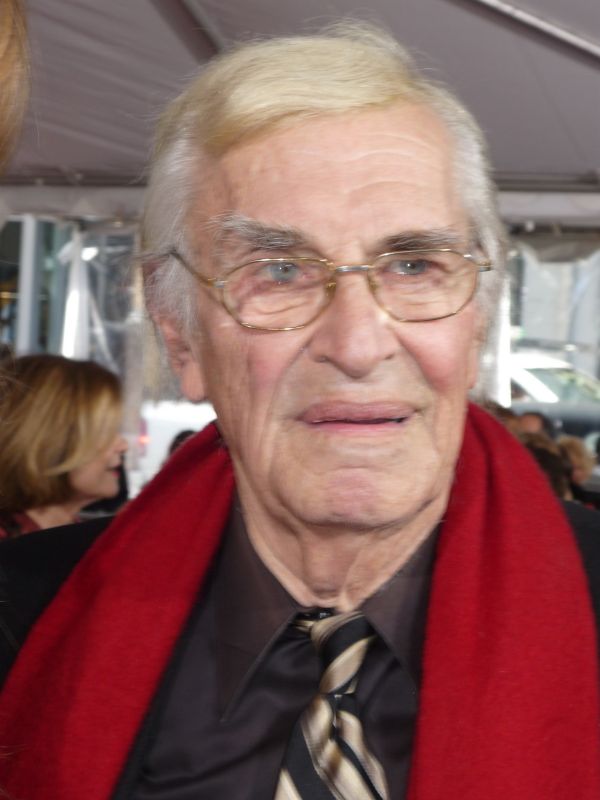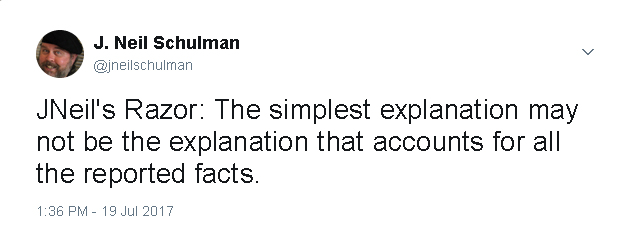The Attack on Memory
by J. Neil Schulman
[email protected]
Special to L. Neil Smith’s The Libertarian Enterprise
My friend, writer/filmmaker/publisher, Brad Linaweaver, has considered—since his days as an undergraduate at Florida State University—the most dishonest movie ever made to be the 1973 Robert Redford/Barbra Streisand movie, The Way We Were, because of what he called its missing reel: the skipping over any mention of the Hitler-Stalin Pact between August 23, 1939 and Hitler’s invasion of Russia on June 22, 1941.
During that almost two-year period members of the Communist Party of the USA—including many Jewish members—opposed the United States joining Great Britain in declaring war on Jew-oppressive Nazi Germany.
It’s ironic that Barbra Streisand’s recording of the song “The Way We Were” from that movie includes the famous lyrics
Mem’ries light the corners of my mind
Misty water-colored mem’ries of the way we were
George Orwell coined the term “memory hole” in his 1949 novel Nineteen-eighty-four to describe the erasure of any history or fact inconvenient to resisting current propaganda. Eric Blair—Orwell was his pen name—gave his novel’s viewpoint character Winston Smith a job he’d had in real life as a police functionary in British India: redacting and altering archives to reflect current government propaganda needs.
Memory and the preservation of the past through documentary records is crucial to human existence. The philosopher Alfred Korzybski considered memory—he labelled it “time-binding”—to be what separates human beings from all other animals.
There can be no personal identity without memory. When through trauma humans have lost memory of their personal lives—profound amnesia where an individual does not remember one’s own job, home, spouse, family, or friends—continued life begins anew, and often the rebooted personality has different opinions, tastes, and life preferences.
Academic researchers and those teaching courses on witness testimony in criminal cases have often repeated in classroom settings an experiment where during a routine class an actor rushes into the classroom, does something dramatic, then abruptly leaves. The class members are then quizzed about what they just witnessed, and the class witness results vary wildly from the actual performance.
After-action interviews of participants in military combat and police actions often find direct inconsistencies between firm memories testified to about the events and what physical evidence or even visual and audio recordings of the events later show. The formation of a memory while adrenalized can create an inaccurate recollection that convinces a witness to recount a false narrative thereafter.
Emphasizing this artifact of human memory malformation and mal-retention is of great value to those who wish to manipulate people through propaganda that erases inconvenient facts.
But now we see propagandists extending memory studies regarding fleeting events to memory in general, conflating eyewitness inability to remember what a bank robber looked like with witnesses testifying to their names, current home addresses, employment, and their family’s names.
If human beings can be infantalized to the point where court testimony is worthless, why have trials at all? The totalitarian impulse to go from arrest to imprisonment has eliminated the barrier of overcoming a presumption of innocence with proof beyond a reasonable doubt.
A few days ago the celebrated actor Martin Landau died.
Again.

Martin Landau, 2010
I—and half a dozen others I’ve discussed this with—have firm and detailed memories of repeated television, newspaper, magazine, and website reports of Martin Landau dying between two and three years ago.
One of those who remember as I do is a Facebook friend, Chris Bobak, who published on a Facebook discussion I started on this topic the following screencap from 2015 referencing Martin Landau’s death:
In my own case my firm and detailed recollections of Martin Landau’s earlier death include not only wall-to-wall TV news reports over the first few days, but conversations with fellow friends (some fellow entertainment industry professionals who had met Martin Landau), the Academy Award telecast including Martin Landau in its “in memoriam” presentation, and in my case reading a memorial article by a friend in a cult-movie online magazine remembering Martin Landau’s performance as Bela Lugosi in director Tim Burton’s 1994 film, Ed Wood.
And our memories contradicted by this same writer friend denying any memory of Martin Landau’s prior death nor that he ever wrote such an article. But he also says that now that Martin Landau has died, this is, in fact, the article he will write.
An actress I’ve worked with also tells me she recently took a class at the Actors Studio with Martin Landau, so he could not have been dead.
This is not an isolated case. Over many years this discontinuity in memory has repeated for me numerous times—so often, in fact, that this has become the theme of my fourth novel currently in progress, The Fractal Man.
Neither is this phenomenon rare. I met during a party at writer/producer Tracy Tormé’s house a woman named Starfire Tor who moderated a Yahoo! group devoted to such discontinuties.
More recently these events have been called the Mandela Effect due to numerous people recalling that Nelson Mandela had died in prison and never became the first black president of South Africa.
I have heard and considered many different theories to what this phenomenon indicates.
UC Irvine cognitive scientist Donald D. Hoffman, PhD., posits that the human brain might simultaneously take in data from a much more complex reality, then—like computer binary data being simplified into desktop icons—present a conventionalized simple timeline.
Physicists who consider the existence of parallel universes or multidimensional realities consider that there might be slippages between or among them.
Albert Einstein and Nathan Rosen contemplated what has sometimes been called Einstein-Rosen bridges between parallel universes. Later physicists have called these “black holes.”
Physics these days keeps on offering up possibilities far beyond conventional experience: dark matter and dark energy; string theories with 11 physical dimensions; laboratory creations of new forms of water beyond the usual ice, liquid water, and steam; previously unknown types of light in which photons might even create solid objects.
Then there are those who insist none of this can be real and what people like me are reporting about discontinuities are just bad memory. And they use these “studies” showing how bad witness testimony is to bolster their argument.
I quote Shakespeare: “There are more things in Heaven and Earth, Horatio, than are dreamt of in your philosophy.”
The outright rejection, scoffing, and trolling of any report of the unconventional, extraordinary, or even unique is an artifact of the type of mind to whom order is more important than facts.
These are the people Orwell warned you about.
Note July 19, 2017:
I consider major discontinuities of memory regarding public milestones to be a problem far beyond individual psychological or neurological maladaptation. To quote Claude Lacombe in Close Encounters of the Third Kind, “It is an event sociological.”
I think the reported memory discontinuities in my article “The Attack on Memory” indicate the necessity for at least a new scientific paradigm, if not a scientific breakthrough, to consider how the human brain, human consciousness, and physical reality intersect.
J. Neil Schulman

The work of UC Irvine cognitive scientist Donald D. Hoffman, PhD:
http://www.cogsci.uci.edu/~ddhoff/ and
http://www.cogsci.uci.edu/~ddhoff/HoffmanPubs.html

J. Neil Schulman is a novelist, screenwriter, journalist, radio
personality, filmmaker, composer, and actor. His dozen books include
the novels Alongside Night and The Rainbow Cadenza,
both of which won the Libertarian Futurist Society’s Prometheus Award
for best libertarian novel, and the anthology Nasty, Brutish, And
Short Stories.
Read
more about him.
Was that worth reading?
Then why not:
![]()
AFFILIATE/ADVERTISEMENT
This site may receive compensation if a product is purchased
through one of our partner or affiliate referral links. You
already know that, of course, but this is part of the FTC Disclosure
Policy
found here. (Warning: this is a 2,359,896-byte 53-page PDF file!)

